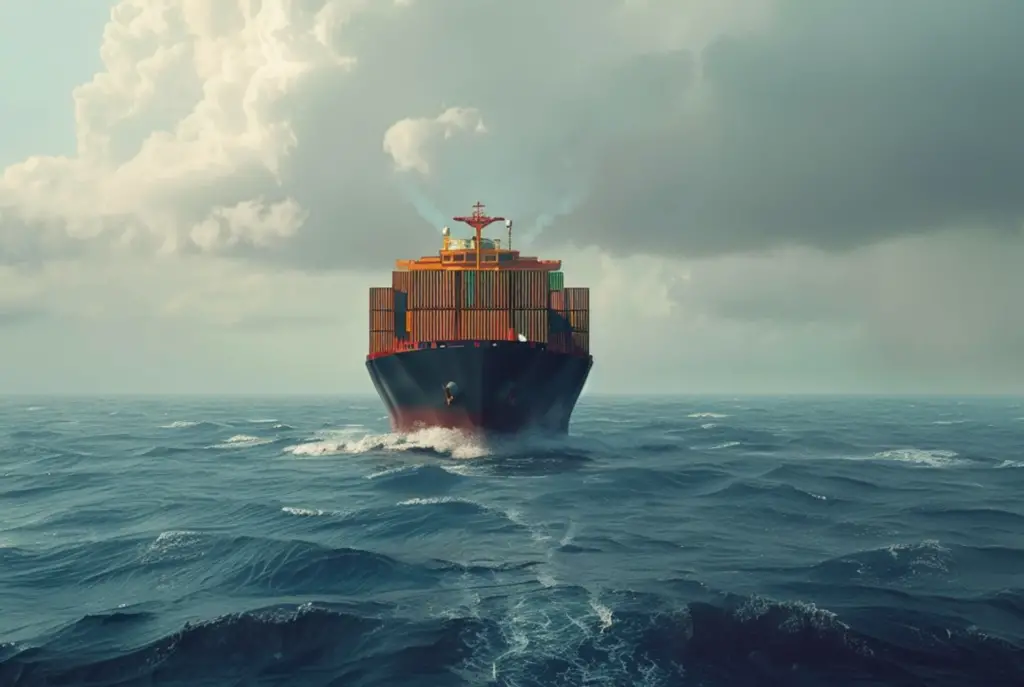
Shipping has long been the backbone of global trade, facilitating the movement of goods and commodities across vast distances.
Ships, with their unparalleled capacity and efficiency, play a crucial role in the international supply chain, transporting a wide array of cargoes to their destinations. From raw materials to finished products, the cargo transported by ships is the lifeblood of the global economy.
Types of Cargoes Commonly Transported by Ships
Ships are capable of carrying a diverse range of cargoes, each with its own unique requirements and handling procedures. The most common types of cargoes transported by ships can be broadly categorized into the following:
- Dry Bulk Cargoes
- Liquid Bulk Cargoes
- Containerized Cargoes
- Specialized Cargoes
Dry Bulk Cargoes and Their Characteristics
Dry bulk cargoes are unpackaged, homogeneous materials that are typically transported in large quantities. These cargoes are often raw materials or commodities, such as:
- Grains (wheat, corn, soybeans)
- Minerals (iron ore, coal, bauxite)
- Fertilizers
- Cement
Dry bulk cargoes are typically loaded and unloaded using specialized equipment, such as conveyor belts and cranes, to ensure efficient and cost-effective transportation. The handling of these cargoes requires careful consideration of factors like density, moisture content, and potential for shifting during transport.
Liquid Bulk Cargoes and Their Transportation Methods
Liquid bulk cargoes, on the other hand, are liquids that are transported in large quantities, often in specialized tankers or tank containers. These cargoes include:
- Crude oil and refined petroleum products
- Chemicals (e.g., sulfuric acid, vegetable oils)
- Liquefied gases (e.g., liquefied natural gas, liquefied petroleum gas)
The transportation of liquid bulk cargoes requires specialized equipment and handling procedures to ensure the safety and integrity of the cargo. Tankers and tank containers are designed with features like double-hulls, cargo monitoring systems, and temperature and pressure control mechanisms to accommodate the specific requirements of these cargoes.
Containerized Cargoes and the Importance of Containerization
The rise of containerization has revolutionized the way goods are transported by ships. Containerized cargoes, which are packed into standardized steel boxes, offer numerous advantages, including:
- Improved efficiency and speed in loading and unloading
- Enhanced cargo security and protection
- Easier intermodal transportation (e.g., from ship to truck or rail)
- Reduced handling and damage risks
Containerization has played a pivotal role in the globalization of trade, enabling the seamless movement of a wide range of manufactured goods, consumer products, and other commodities across the world.
Specialized Cargoes and Their Unique Transportation Requirements
In addition to the more common cargo types, ships also transport a variety of specialized cargoes that require unique handling and transportation methods. These include:
- Oversized or heavy-lift cargoes (e.g., wind turbine components, construction equipment)
- Perishable goods (e.g., fresh produce, frozen foods)
- Hazardous materials (e.g., chemicals, radioactive materials)
- Live animals
The transportation of specialized cargoes often involves the use of dedicated ships, equipment, and handling procedures to ensure the safety and integrity of the cargo.
Challenges and Considerations in Cargo Transportation by Ships
Cargo transportation by ships is not without its challenges. Factors such as weather conditions, port infrastructure, and regulatory requirements can all impact the efficiency and reliability of cargo transport.
Shipowners and logistics providers must navigate these challenges to ensure the timely and cost-effective delivery of cargoes.
Additionally, the environmental impact of cargo transportation by ships is a growing concern, with initiatives to reduce emissions and promote sustainable practices gaining traction in the industry.
Safety Measures and Regulations in Cargo Transportation
Ensuring the safe and secure transportation of cargoes is of paramount importance in the shipping industry.
Comprehensive regulations, such as the International Maritime Dangerous Goods (IMDG) Code and the International Convention for the Safety of Life at Sea (SOLAS), govern the handling, stowage, and transportation of various cargo types, with a focus on mitigating risks and protecting both the crew and the cargo.
Shipowners, port authorities, and logistics providers must adhere to these regulations and implement robust safety protocols to prevent accidents, spills, and other incidents that could have severe consequences.
Emerging Trends and Innovations in Cargo Transportation by Ships
The shipping industry is constantly evolving, with new technologies and innovations transforming the way cargoes are transported by ships.
Developments in areas such as autonomous shipping, digital tracking and monitoring, and alternative fuel sources are driving increased efficiency, sustainability, and resilience in cargo transportation.
As the global economy continues to expand, the demand for reliable and efficient cargo transportation by ships will only grow. By staying informed about the latest trends and innovations in the industry, businesses and logistics professionals can better navigate the ever-changing landscape of cargo transportation.